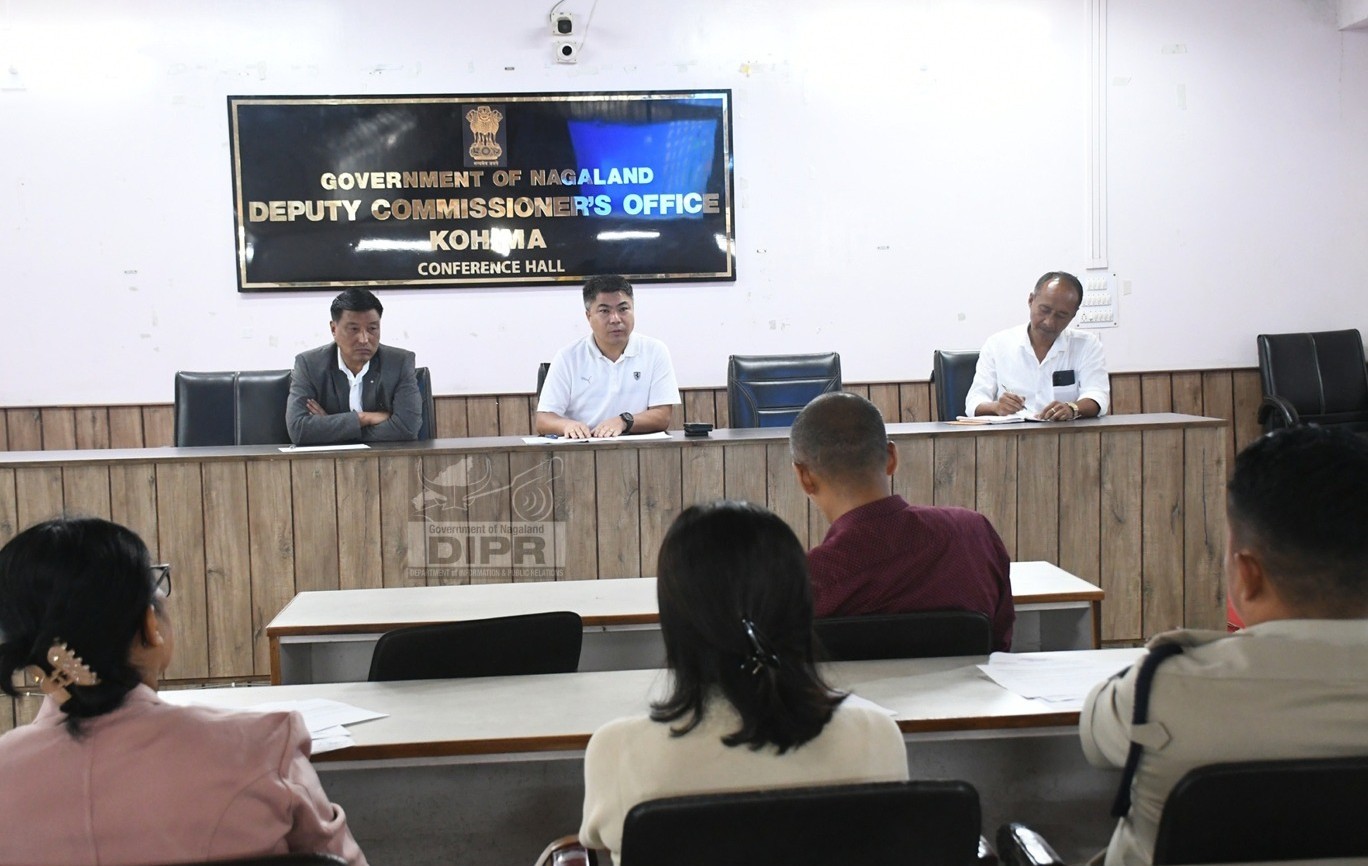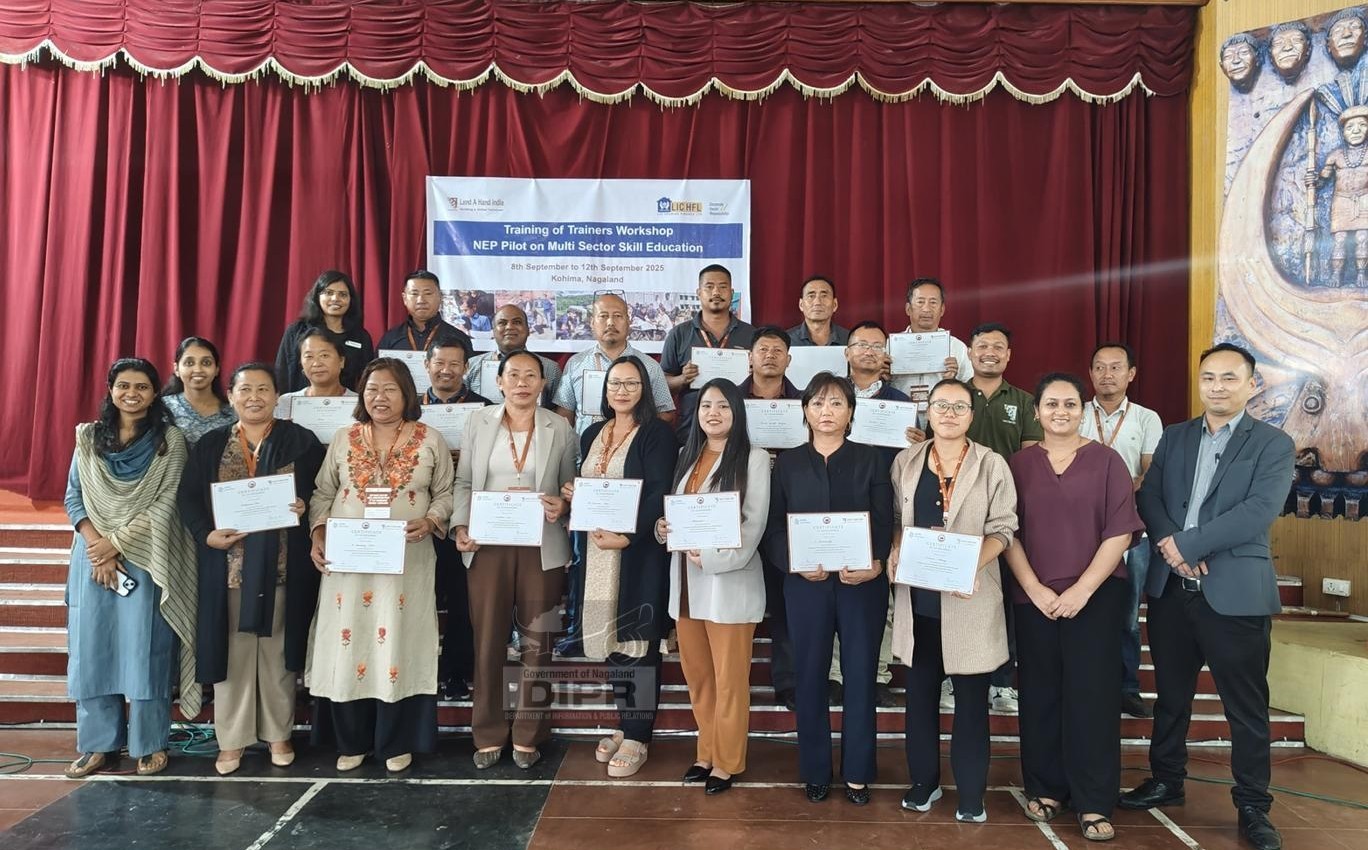The issue of unemployment in the state, raised by Advisor Hekani Jakhalu, was discussed in the seventh session of the 14th Assembly on 2nd September 2025 at Nagaland Legislative Assembly, Kohima.
Advisor for Industries & Commerce, Hekani Jakhalu began the discussion by stating that Nagaland is one of the youngest among the states in the country with 40% of the population comprising of citizens from ages 15 to 35 as per the 2011 census. She said that in the next 15-20 years, they are set to become the main drivers of the state’s socio-economic developmental affairs and it is of utmost need to look into ways to shape and mould the youth of today for the growth of the state.
Jakhalu stressed that the proportion of educated youth and the labour force has been constantly rising but growth in the rate of employment opportunities still remain to be very slow, in the government and private sector alike. She remarked that there also needs to be a clear understanding in the meaning of unemployed and unemployable, referring to the former as a symptom and the latter as an illness thereby stating that to tackle the illness, the Government of the day needs to fix the unemployment issue.
Jakhalu also stated the importance of the education system in preparing the youth for the job market and that although one may pass out with a certificate if there is lack of skills it becomes difficult to fit into the requirements of the job market thereby, stressing on the importance of upskilling, adapting to new technologies so as to keep pace with the said requirements.
Stressing on the important roles played by the stakeholders, she stated that the members of legislative assembly, officers and staff of the state government, parents, and the youth themselves play a key role in the mindset shift so as to promote dignity of labour in all fields of work.
With respect to interventions that are needed, Jakhalu spoke on upgrading the education system, upskilling through internship and apprenticeship programmes, and governmental support in entrepreneurial ventures and MSME, adding that the state need to provide additional focus on individuals that are creating jobs. She also stated that although capacity building programmes have been aggressively taken up in the state it has received lukewarm response due to lack of financial incentives. In addition, she also spoke on the need for improving the power and road sector to attract more investors to the state.
Advisor, School Education & SCERT, Dr. Kekhrielhoulie Yhome supplementing to the topic stressed on the dignity of the workers especially in the private sector, he mentioned that there are three categories in wages, unskilled, semi-skilled and skilled labour which is covered under the Nagaland minimum wage act 2025 and pointed that Nagaland was the lowest in the country, he therefore urged the need to create a schedule list and salary structure on employment based on sectoral categories and job trades. He further said that our youth need to look at the demand labour market at the domestic and the international level and need to venture out abroad and bring back the best practices to upscale our entrepreneurial literacy and financial literacy to nurture and nourish a new sense of Naga livelihood pattern.
On the importance of vocational training and skill development, he said that with the introduction of NEP 2020, the department has vocational training in schools to address the high rate of unemployment. By integrating vocational subjects into the curriculum, the aim is to provide students with the specific skills needed for employment. He also proposed to come out with a system which will onboard all educational institutions and departments which are providing vocational education to upscale the certifying process and accreditation systems. He further added that the department will be launching a ‘SOAR mission’ programme on 5th September to upscale the curriculum on vocational programmes.
Participating in the discussion, Advisor, Transport and Technical Education, Temjenmenba highlighted the details of unemployment in Nagaland. He also stressed on the objective of NEP 2020 for skill development and vocational training and further spoke on the potential departments like IT, Industries & Commerce, Employment & Skill development and Technical Education to produce skilled workers among the youth.
Advisor, Law & Justice and Land Revenue, T.N Mannen said that Nagaland is blessed with a young population and Youth is our future and our biggest asset. He stated that vocational training and job- oriented skill development should be encouraged for the youth. He stressed on the importance of creating a investment friendly atmosphere in the State such as availability of basic facilities, power, internet etc to attract investors and thereby providing job opportunities to the youth.
Advisor, Social Welfare, Wangpang Konyak mentioned that over dependence on Government jobs, gap between education and skills, part time workers not accounted for are some of the factors for high unemployment rate in Nagaland. He said that Schools and College curriculums in the State must be aligned with National and International standards inorder to make the youth employable not just in Nagaland but in India and Abroad. He also encouraged the youth to look beyond white- collar jobs and to inculcate the value of hard work and dignity of labour and to look for employment in the private sector, service sector, start businesses.
Minister for Tourism and Higher Education, Temjen Imna Along on matters of urgent public importance pertaining to "Unemployment in Nagaland" highlighted the recent and comprehensive data on unemployment in Nagaland during the discussion. He mentioned that unemployment rate between the ages of 15 and above has gone from 4.3% to 7.1% after COVID-19 pandemic which means a surge of 65℅ increase. The urban areas are facing greater challenges as unemployment ratio in urban areas is significantly higher than rural areas. The worker population increased from 32.8% to 68.1% since there was a sharp rise of educated unemployed youth in urban areas after COVID-19 pandemic. He said the growth rate of unemployment in our State is much higher than the National average due to lack of limited private sector growth, over-dependence on government jobs, and the attitude and mindset of our educated youth not inculcating the habit of work culture.
MLA, Dr. Neisatuo Mero highlighted that unemployment has emerged as one of the most pressing crises, with the job market becoming increasingly difficult due to massive job losses, particularly in the aftermath of the COVID-19 pandemic. He pointed out that with over 50% of India’s population currently under the age of 25, nearly 7–8 million individuals will soon enter the job market, making it vital to implement effective measures and policies to tackle the issue. If left unchecked, unemployment could also lead to the rise of undesirable social elements in the state. He further noted that while the government has introduced several schemes and initiatives to encourage self-employment, there remains significant potential for the youths into pursue opportunities in masonry, carpentry and other secondary activities if properly skilled.
MLA, Achumbemo Kikon also spoke on the occasion stating the need for a policy that focuses on educated and uneducated unemployed youth alike as the youth have also realized that without working, it is difficult to survive. He also spoke on oversaturation of the government offices, stressing on the need to encourage the youth to realize their purpose through entrepreneurial ventures, adding that the government needs to provide a conducive environment for them to be able to thrive.
Chief Minister, Dr. Neiphiu Rio in his concluding remarks described Unemployment in Nagaland as a burning issue, noting that the discussion on the subject is progressive as it reflects genuine concern for the youth, who are the future of the state. Addressing the challenges of unemployed and unemployable youth, he directed the Department of Employment & Skill Development to study the matter in detail and recommend corrective measures, taking into account the ground realities.
Dr. Rio further emphasized the need for people to adopt a more open and honest mindset, urging them to strive for positive change instead of remaining overly dependent on government jobs. He also highlighted the importance of accurate data collection and proper record-keeping to facilitate better decision-making. Outlining the steps taken by the government to promote entrepreneurship, the Chief Minister said that multiple training institutions have been established across the state to provide free skill development programs. He noted that a dedicated cell has also been created under the Investment & Development Authority of Nagaland (IDAN) to provide collateral-free loans, repayable after five years, as a means of micro-financing.
Dr. Rio pointed out the vast potential in the handloom and handicraft industry in the State and stressed the need to identify experts and designers who can collaborate with tribal women to develop commercially viable designs on a larger scale. Underscoring the importance of reducing dependency on government employment, Dr. Rio stated that it will all depend on how effectively we restructure and address the Skill gap. He concluded by stating that the state should turn the crisis of today into a foundation of a stronger self reliant tomorrow.



